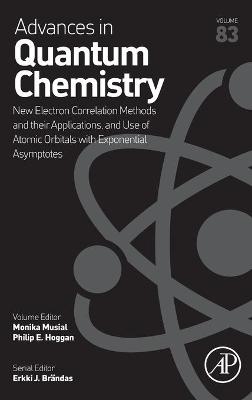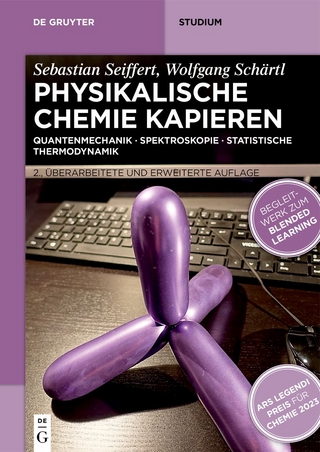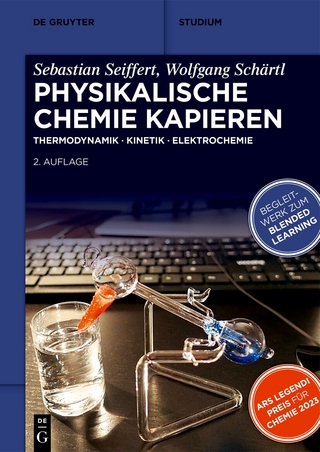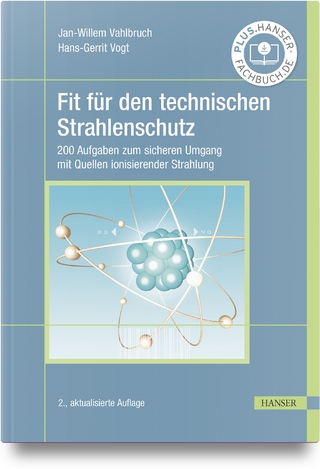
New Electron Correlation Methods and their Applications, and Use of Atomic Orbitals with Exponential Asymptotes
Academic Press Inc (Verlag)
978-0-12-823546-1 (ISBN)
Monika Musial graduated from the University of Silesia in Katowice (MSc in theoretical chemistry) in 1996. She received her Ph.D degree in 2002 (University of Silesia in Katowice) for the work on the development of new coupled cluster models including high-rank cluster operators. In the following years she spent some time in Quantum Theory Project (University of Florida, Gainesville) working as a postdoctoral associate in the research group of Professor Rodney J. Bartlett. In 2010 she made her habilitation (with distinction, Faculty of Chemistry, University of Warsaw) and later in 2014 she received a full professor position. In the following years she continued collaboration with prof. Bartlett as a visiting researcher/professor in Quantum Theory Project. She also made short term visits to the Institute for Nuclear Theory, University of Washington, Seattle, USA and Laboratoire de Chimie Quantique Universite Louis Pasteur, Strasbourg, France. Currently, she is a Professor of Chemistry in the Institute of Chemistry of the University of Silesia in Katowice. Her research interests are focused on the development of new computational methods within the framework of the coupled cluster theory. The new approaches are aimed at the accurate determination of energies and properties of ground and excited states. These tools are particularly useful in studies of potential energy curves and owing to that they can be used in the accurate description of a dissociation process. Such highly accurate methods are necessary in the studies of molecules in ultralow temperatures where the precise knowledge of interatomic interactions in the whole range of the distance between engaged atoms is required. She supervised several research projects focused on the development of new methods devoted to the theory of electron correlation (e.g., from National Science Centre in Poland). She organized international conferences: 15th Central European Symposium on Theoretical Chemistry held in Poland in September 2017; co-chaired (with Prof. Krzysztof Pachucki from University of Warsaw) Warsaw Molecular Electronic Structure Virtual Conference (September 2020). She is a member of Scientific Committee organizing Molecular Electronic Structure conferences. She was a supervisor for a number of Ph.D. thesis at the University of Silesia and she was a member/reviewer in several research funding committees. Born in Aberystwyth, Wales and educated at Trinity College Cambridge, Philip Hoggan has always been French and British. After a mathematical chemistry background, he has studied a number of theoretical systems, with a DSc by research obtained in 1991 at Nancy, France on the way physical interaction between molecules and solid surfaces is a precursor to catalysis. This was treated entirely on the basis of Quantum Mechanics and applied, first to cis-trans butadiene isomerization on alumina and then a number of ‘organic’ reactions. The first lectureship was at Caen, Normandy from 1992. This period led to some fundamental research of ab initio Slater electronic structure calculations for more than 3 atoms. The first related code STOP was published in February 1996 after much work by a postdoctoral fellow A. Bouferguène, now Professor at U Alberta. After continuing to study catalytic systems at Caen, from a theoretical viewpoint, Philip Hoggan was appointed to the Chair of Theoretical Chemistry in Clermont from May 1998. This is still essentially his teaching position, although research interests have switched to solid-state (surface) physics joining the Pascal Institute for physics in Clermont from 2005. This followed a visiting professor stay of 18 months at Tallahassee, Florida in Theoretical Physics. Research emphasis has shifted from the STOP era (where the problem was solved by Coulomb Resolution in 2008) to Quantum Monte Carlo (QMC). The CNRS paid leave for a couple of years for Philip Hoggan to learn about this technique from Cyrus Umrigar, Julien Toulouse, Michel Caffarel and others. Of course, it eventually led to a project to calculate catalytic reactions on metal surfaces that was initiated by G-J Kroes (Leiden, NL) and his ERC in 2014. K Doblhoff-Dier arrived in Clermont for a ground-breaking research fellowship and each of us continues to produce very accurate work e.g. on hydrogen (production and dissociation on metals), as a clean fuel for renewable energy. Now, in 2023 we enter the 400th anniversary of Blaise Pascal’s birth. He invented calculators, some of which are in the Clermont museum. It is wonderful to work in the institute that bears his name conducting QMC on catalytic hydrogen synthesis on super-calculators: the tools that trace their roots to his ‘Pascaline’. Philip Hoggan is married and has twin daughters.
| Erscheinungsdatum | 02.09.2021 |
|---|---|
| Reihe/Serie | Advances in Quantum Chemistry |
| Verlagsort | San Diego |
| Sprache | englisch |
| Maße | 152 x 229 mm |
| Gewicht | 450 g |
| Themenwelt | Naturwissenschaften ► Chemie ► Physikalische Chemie |
| Naturwissenschaften ► Physik / Astronomie ► Angewandte Physik | |
| Naturwissenschaften ► Physik / Astronomie ► Atom- / Kern- / Molekularphysik | |
| ISBN-10 | 0-12-823546-2 / 0128235462 |
| ISBN-13 | 978-0-12-823546-1 / 9780128235461 |
| Zustand | Neuware |
| Informationen gemäß Produktsicherheitsverordnung (GPSR) | |
| Haben Sie eine Frage zum Produkt? |
aus dem Bereich


